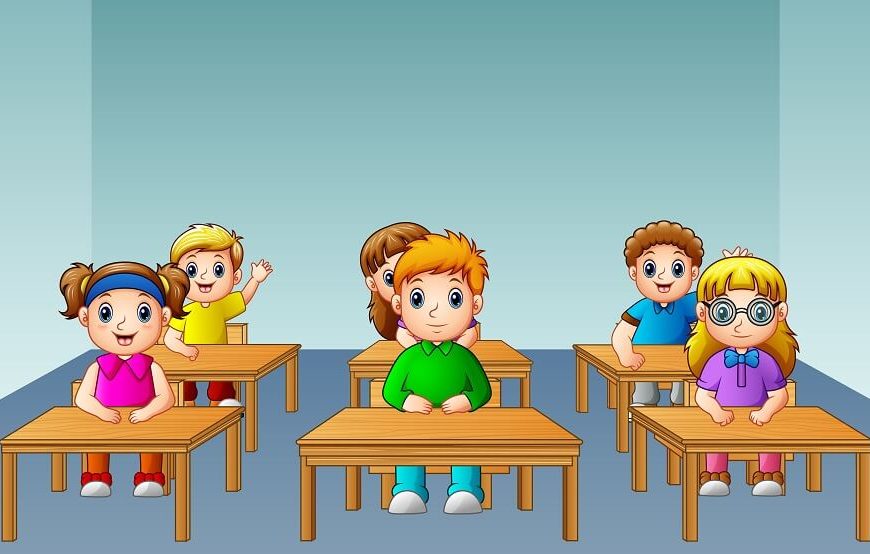Effective Strategies for Infant Communication in Classroom
Every living creature has its way of communicating. Birds make squeaks and chirps while dogs bark. Communication is essential for all living things. Humans have different languages and dialects to talk to each other. We also have books and poems that make communication more beautiful. That’s why learning how to communicate well from a young age is essential. Infant communication is necessary.
Types of communication
Before delving into infant communication, let’s explore the different types of communication. Essentially, there are two ways to communicate: verbally and non-verbally. Verbal communication involves using words to convey messages, including tone of voice and word choice. It’s crucial to use language that the other person can easily comprehend. On the other hand, non-verbal communication occurs when we express messages through our body language, both intentionally and unintentionally. This includes facial expressions, eye contact, personal space, hand gestures, and even physical touch, like hugs.
Strategies for Effective Infant Communication in the Classroom
Promoting communication in the classroom is extremely important for teachers. It benefits children throughout their life. The classroom serves as the initial social circle for children. Here is how a teacher can encourage a child to communicate.
- Listen to them: Before learning how to talk to babies, a teacher should learn how to listen to them. Children can encounter challenges in expressing themselves in their early years. They may feel embarrassed or frustrated because they haven’t yet learned the proper communication language. As a teacher, it is crucial to be patient and attentive when listening to children. Being a good listener is vital because if a teacher is not present in a conversation, it can discourage a child from further communication. Communication isn’t just about talking; listening is equally important. Children often imitate their parents and teachers, so if you become their role model and show them the value of being a good listener, they will likely follow suit.
- Learn to baby talk: You must think about baby talk. So baby talk refers to the intentional simplification and exaggeration of speech that adults use when communicating with children. It involves adjusting the way of speaking to make it easier for children to understand and engage with, using a more playful and exaggerated tone. Now we know what baby talk is; the next question is why it is essential. Baby talk is crucial in establishing a safe and nurturing environment for infant communication. It creates a sense of comfort and security, which encourages babies to engage and communicate more effectively.
- Encourage reading skills: When teaching a one-year-old, introducing them to stories and poems is crucial for developing their interest in language. Studies have shown that exposing children to books and teaching at an early age enhances their vocabulary, which contributes to developing strong communication skills in the future. Therefore, a teacher must encourage reading habits.
- Make communication fun: If you’re wondering how to talk to babies, the key to infant communication is making conversations enjoyable and engaging. The secret lies in making the interaction fun and interactive. Engage them in conversations about their friends, preferences, and experiences. Share stories and encourage them to share their own. When children feel comfortable and enjoy talking with their teacher, the teacher has accomplished their goal. Making conversations enjoyable can help overcome barriers and foster a positive relationship between students and teachers.
- Teach them to express their emotions: One of the most important things to teach a 1-year-old is to express themselves. Babies often cry when they experience discomfort. They will call to speak of hunger, fear, or any other emotion. However, if you want to establish effective infant communication, teaching them how to express themselves is crucial. Teach babies to name their feelings. For instance, if your baby cries due to hunger, use baby talk and ask them if they are hungry. They will learn the names of different emotions through your interactions.
- Learn constructive criticism: Sometimes, toddlers misbehave in class, which can bother the teacher. In these situations, it’s helpful to talk to them and explain the classroom rules, helping them understand their mistakes. However, it’s essential only to criticize their behavior, not them. When a teacher gets angry and knocks a toddler, it can impact their sensitive minds. It’s necessary to be fair when pointing out mistakes, but it’s even more critical to provide criticism in a kind and helpful way.
Conclusion
In conclusion, effective communication with infants in the classroom is crucial for their development and social interaction. By understanding the different types of communication, including verbal and non-verbal, teachers can create an environment that fosters healthy infant communication. Strategies such as active listening, baby talk, encouraging reading, making communication fun, teaching emotional expression, and providing constructive criticism can greatly enhance infant communication. When teachers prioritize these strategies, they not only promote language and social development and build strong connections with their students. By laying the foundation for effective communication from an early age, teachers play a vital role in equipping infants with lifelong skills that will benefit them in various aspects of their lives.
In conclusion, effective communication with infants in the classroom is crucial for their development and social interaction. By understanding the different types of communication, including verbal and non-verbal, teachers can create an environment that fosters healthy infant communication. Strategies such as active listening, baby talk, encouraging reading, making communication fun, teaching emotional expression, and providing constructive criticism can greatly enhance infant communication. When teachers prioritize these strategies, they not only promote language and social development and build strong connections with their students. By laying the foundation for effective communication from an early age, teachers play a vital role in equipping infants with lifelong skills that will benefit them in various aspects of their lives.
At Eurokids, we understand the importance of infant communication. We ensure that you get the best knowledge about the subject. Click here to learn more or to visit a Eurokids center for preschool admission for your child.

















